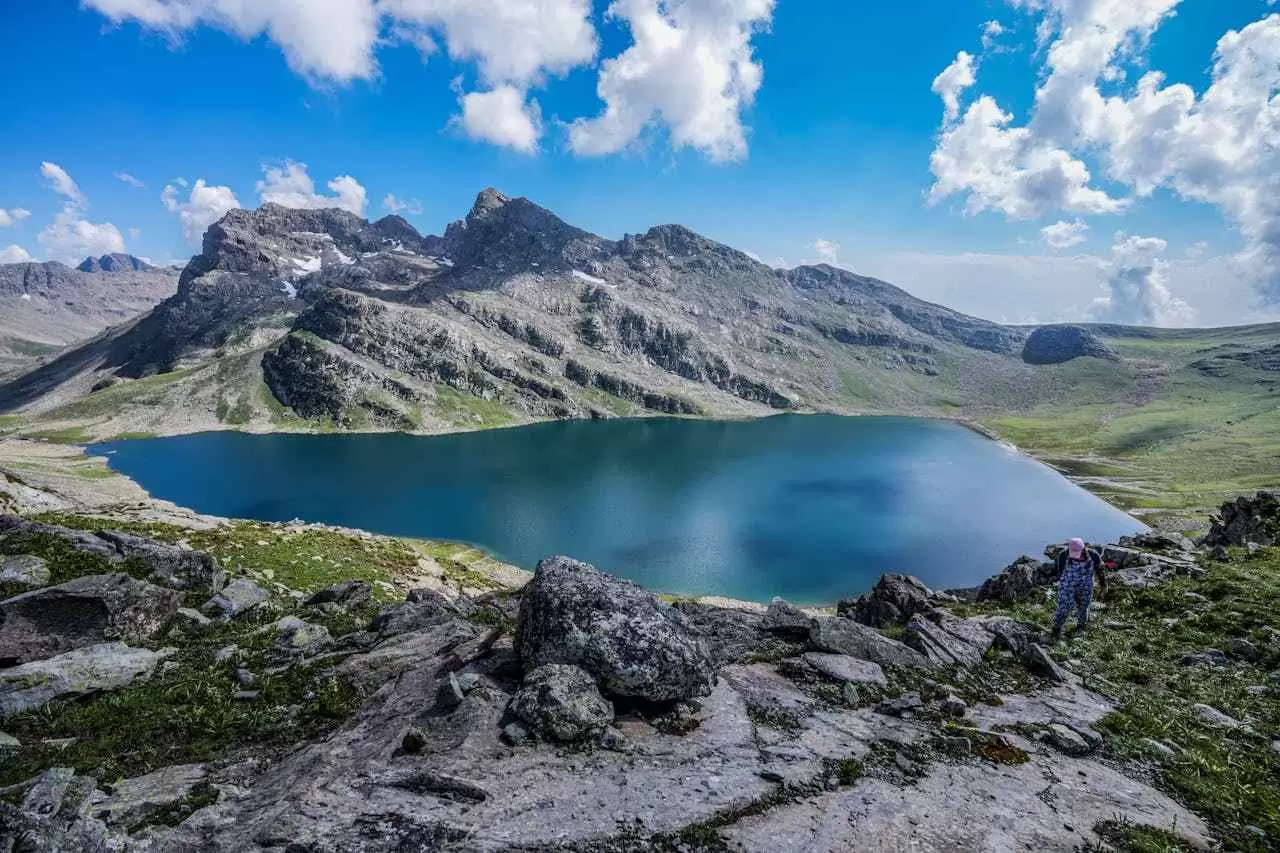
Tucked away at the base of the mighty Apharwat Peaks, Alpather Lake (also called the “Frozen Lake”) is one of Gulmarg’s most enchanting natural wonders. Perched at an altitude of about 4,390 meters (14,403 feet), this high-altitude alpine lake is a dreamlike destination that stays frozen well into the summer months, making it one of the most surreal attractions in Kashmir.
Surrounded by snow-laden mountains and rolling meadows, the lake offers visitors a rare blend of adventure, tranquillity, and breathtaking scenery — making it a favourite among trekkers, honeymooners, and nature enthusiasts alike.
Altitude: 4,390 m (14,403 ft) above sea level
Opening Hours: Open during daylight (recommended 9:00 AM – 3:00 PM)
Best Visiting Days: Monday – Friday, 9:00 AM – 3:00 PM
Ideal Duration: 4 – 6 hours (including travel & exploration)
Entry Fee: No entry charges (Gulmarg Gondola Phase II tickets ~ ₹1010 per person)
Nearest Airport: Sheikh Ul-Alam International Airport, Srinagar (60 km)
Nearest Railway Station: Srinagar Railway Station (50 km)
Nearest Bus Stop: Gulmarg Bus Stand, town centre
A 13 km trek from Gulmarg through meadows and rugged terrains
Scenic Gondola ride to Apharwat Peak, followed by a short hike
Incredible photo opportunities in both frozen and thawed states
Home to vibrant flora and rare Himalayan fauna
Remains frozen from November to mid-June, making it one of Kashmir’s most unique attractions
Summer (June – September): Pleasant (10°C – 20°C). The lake starts to melt, meadows burst into colour – perfect for trekking and photography.
Spring (April – May): Cool (5°C – 15°C). Witness the rare beauty of the lake, half-frozen and half-liquid.
Winter (November – March): Freezing (-10°C -2°C). The lake remains entirely frozen, offering thrilling snow treks and a magical winter landscape.
By Road: 13 km trek/pony ride from Gulmarg town.
By Gondola: Take the cable car up to Apharwat Peak (Phase II), followed by a short hike.
By Air: Nearest airport – Sheikh Ul-Alam International Airport, Srinagar (60 km).
By Rail: Nearest station – Srinagar Railway Station (50 km).
Dress in layers and warm clothing; the weather can shift quickly.
Carry food, snacks, and water – no shops near the lake.
Wear trekking shoes with a good grip for rocky or snowy terrain.
Acclimatise in Gulmarg before attempting high-altitude trekking.
Respect nature, avoid littering and keep the lake surroundings pristine.